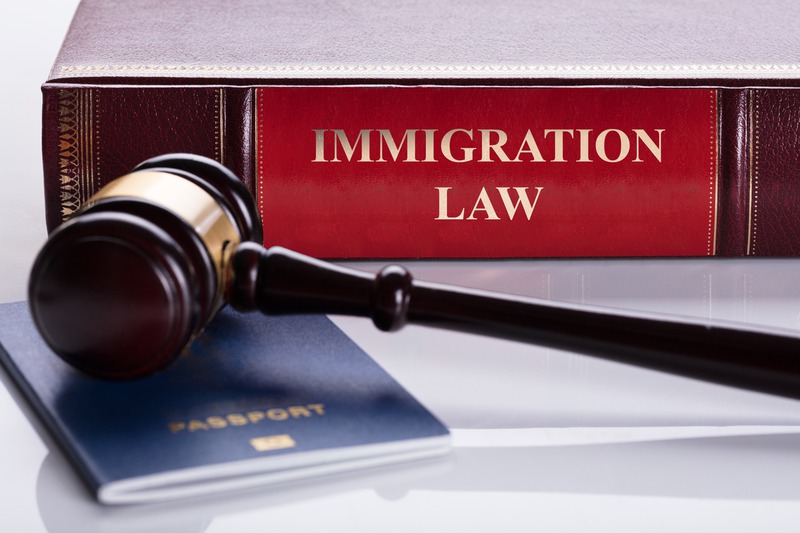
What Are the Different Types of Legal Services?
Legal services encompass a variety of offerings provided by licensed professionals to advise and represent clients in legal matters. These services cater to the diverse needs of individuals, corporations, and governments, addressing issues ranging from civil rights to corporate law. Different legal services include criminal defense, family law, intellectual property, corporate law, and more. Each service area has its nuances, requiring specialized knowledge and expertise. Here are some of the different types of legal services:
1. Family Law
Family law encompasses many legal issues that arise within family relationships. This includes divorce and legal separation, where lawyers help clients navigate the division of assets, child custody, and spousal support arrangements. Family lawyers also handle matters such as adoption, guardianship, child protection, and domestic violence cases, advocating for the best interests of their clients and ensuring that their rights are protected under the law.
2. Criminal Law
Criminal law involves representing individuals accused of committing crimes and defending their rights throughout the criminal justice process. A criminal lawyer in Philadelphia, PA, provides legal counsel and representation at every stage, from arrest and bail hearings to trial and appeals. They investigate the facts of the case, build defense strategies, negotiate plea bargains, and advocate for their client’s innocence or reduced charges.
3. Corporate and Business Law
Corporate and business law encompasses legal issues related to business formation, operation, and dissolution. Business lawyers advise clients on entity selection and formation, draft and negotiate contracts, resolve shareholder disputes, navigate regulatory compliance, and handle mergers and acquisitions. They provide strategic counsel to businesses of all sizes, from startups to multinational corporations, helping them achieve their goals while minimizing legal risks and liabilities.
4. Real Estate Law
Real estate law deals with legal matters related to property ownership, transactions, and development. Real estate lawyers assist clients with buying, selling, leasing, and financing residential and commercial properties. They review contracts, conduct title searches, facilitate closings, resolve disputes over property boundaries or ownership, and ensure compliance with zoning and land use regulations.
5. Estate Planning and Probate
Estate planning involves creating legal documents to plan for the distribution of assets and property upon death and making arrangements for healthcare and financial decisions in the event of incapacity. Estate planning attorneys draft wills, trusts, powers of attorney, and advance directives tailored to client’s wishes and circumstances. Probate attorneys guide executors and beneficiaries through the legal process of administering a deceased person’s estate, including probating the will, paying debts and taxes, and distributing assets according to the decedent’s wishes or state law.
6. Civil Litigation
Civil litigation refers to legal disputes between individuals or entities seeking monetary damages or specific performance. A civil litigation attorney in Philadelphia represents clients in lawsuits involving contract disputes, personal injury claims, property disputes, employment grievances, defamation cases, and more. They handle all aspects of the litigation process, including pre-trial preparation, discovery, motion practice, settlement negotiations, and courtroom advocacy.
7. Immigration Law
Immigration law deals with legal matters related to immigration, citizenship, and residency status. Immigration lawyers assist individuals, families, and employers in navigating the complex immigration system, including obtaining visas and green cards, applying for citizenship or asylum, defending against deportation or removal proceedings, and ensuring compliance with immigration laws and regulations.
8. Intellectual Property Law
Intellectual property law protects legal rights to inventions, creative works, and trademarks. Intellectual property attorneys help clients secure patents, trademarks, and copyrights to protect their innovations, artistic creations, and brand identities. They also enforce intellectual property rights by prosecuting infringement claims, negotiating licensing agreements, and resolving disputes through litigation or alternative dispute resolution mechanisms.
9. Employment Law
Employment law addresses legal issues arising in the workplace and governs the rights and responsibilities of employers and employees. Employment lawyers advise clients on employment contracts, workplace discrimination and harassment, wage and hour compliance, employee benefits, and workplace safety regulations. They represent clients in disputes with employers, including wrongful termination claims, discrimination lawsuits, and collective bargaining negotiations.
10. Bankruptcy Law
Bankruptcy law deals with legal proceedings for individuals or businesses that cannot repay their debts. A Philadelphia bankruptcy lawyer helps clients evaluate their options for debt relief, including filing for bankruptcy under Chapter 7, Chapter 13, or Chapter 11 of the Bankruptcy Code. They guide clients through bankruptcy, protect their assets from creditors, negotiate debt settlements, and advocate for their interests in bankruptcy court proceedings.
Wrapping up
The legal landscape is multifaceted, with various services tailored to individuals’ and organizations’ specific legal challenges. From the intricate matters handled by family law professionals to the strategic counsel provided by corporate attorneys, the variety of legal services ensures that legal support is accessible for any issue. As society continues to evolve, so does the demand for distinctly legal services, highlighting the necessity for a robust network of legal experts to guide clients through the ever-changing maze of laws and regulations.






